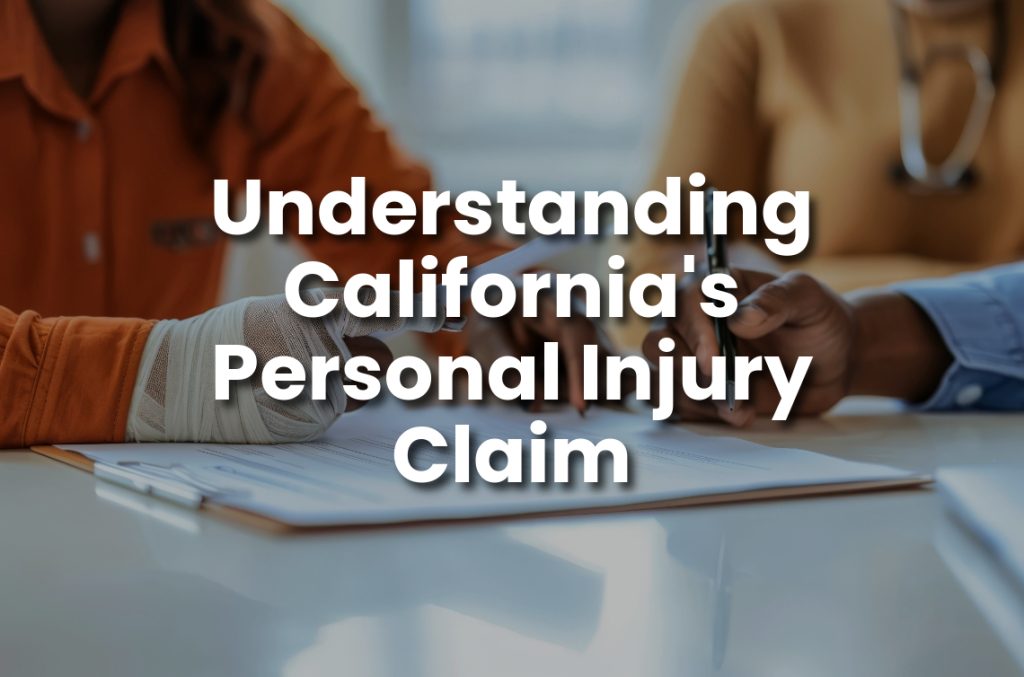California law gives you a limited time to file a personal injury lawsuit – generally two years from the date of your injury. Missing this deadline can mean losing your right to seek compensation. The following information explains the California personal injury claim time limit, how it works, and the important exceptions you need to know.
Time Limit
If you’ve been injured in an accident in California, understanding the personal injury claim time limit is crucial. This deadline, known as the statute of limitations, dictates how long you have to file a lawsuit. Missing this deadline can mean losing your right to seek compensation.
What is the Personal Injury Claim Time Limit in California?
In California, the general time limit for filing a personal injury lawsuit is two years from the date of your injury. This means your lawsuit must be filed within two years of the accident or incident that caused your injuries.
How the Two-Year Clock Works
The clock starts ticking on the date of the injury itself, not the date you discover the injury (although there are important exceptions discussed below). It’s important to act promptly, even if your injuries seem minor initially.
Exceptions to the Two-Year Rule: Tolling
There are situations where the two-year time limit may be extended, a process known as “tolling.” These exceptions can be complex, so consulting with an attorney is always recommended. Some common examples include:
- Discovery Rule: If your injury wasn’t immediately apparent, the clock may start ticking when you discovered it or reasonably should have discovered it. For example, if you suffer internal injuries from an accident that aren’t diagnosed until months later, the clock might start from the diagnosis date.
- Minors: If you were a minor when injured, the clock is paused until your 18th birthday. You then have two years from your 18th birthday to file.
- Defendant Unavailable: If the person you’re suing (the defendant) is out of state or cannot be found, the time limit might be paused until they can be located and served with the lawsuit.
- Government Entities: Suing a government entity has a much shorter deadline. You generally must file a claim with the government agency within six months of the incident. If the claim is denied, you then have two years from the date of denial to file a lawsuit.
For more details on tolling and other exceptions, see this helpful resource from the California Courts: California Courts Self-Help Guide: Statute of Limitations.
Can You Sue After the Time Limit Expires?
No, generally, you cannot sue someone for a personal injury after the statute of limitations has passed. Once the deadline expires, you lose your legal right to file a lawsuit. Courts will typically dismiss any cases filed after this time limit. This makes it absolutely vital to understand and follow the correct deadlines for your specific situation. Missing the deadline can have serious consequences, preventing you from ever recovering compensation for your injuries, medical expenses, lost wages, and other damages.
Protect Your Rights: Act Now
Understanding California’s personal injury claim time limit is essential for protecting your rights. Don’t risk missing your chance to seek justice and compensation. The statute of limitations is a strict legal requirement, and delays can jeopardize your ability to recover for your losses. Consulting an attorney promptly after an accident can help you understand your rights, navigate the legal process, and ensure you meet all deadlines. Act now to protect your future.
Injured in an Accident? We Can Help.
If you’ve been injured in an accident in California, the complexities of the statute of limitations can be overwhelming. Contact Muhareb Law Group today for a free consultation. Our experienced team will assess your case, explain your rights, and help you understand the deadlines that apply to your situation. Call (909) 519-5832.
Phone:
Office: (909) 519-5832
Direct: (909) 437-7810
Fax:
(909) 935-3858
Mail:
muhareb@muhareblawgroup.com
